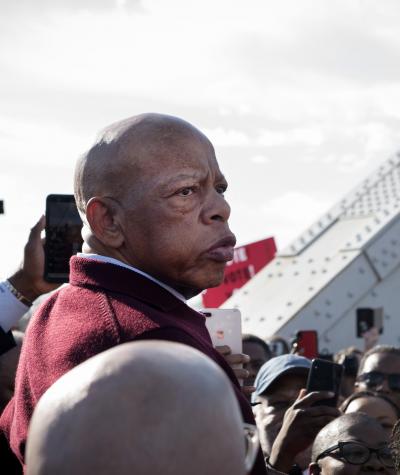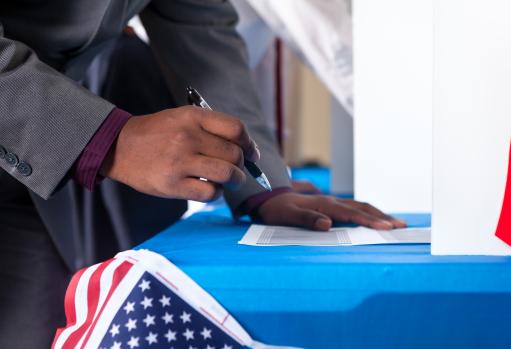I am writing this piece to pay tribute to John Lewis, a man I first met nearly 40 years ago.
Much has already been eloquently written about this great American hero. How he was a strong symbol of what it means to be an American, and how he taught us to march on toward a more just country, even when the struggle seemed too hard and we felt too tired to go on. How he lived his life in a way that inspired us to live up to his example.
All that is true, of course, but I have chosen to write this piece because I had a different perspective: I served as his legal counsel in several voting rights cases and matters, a subject he knew so much about and for a right he felt was so important that he marched, was beaten, arrested, and fought his entire adult life to protect.
As his legal counsel, I occasionally walked with him from his House office to the Capitol building where he was voting on some piece of legislation. He always welcomed my presence and conversation. Along the way, he would carefully listen, ask an occasional question that went to the heart of the case or matter that I was handling, and would give me clear direction of his views on the case.
What I recall most clearly is that once I explained how the case impacted voting rights, particularly black voters whose rights were under attack, he would make clear to me that he wanted to make the best arguments on the side of justice and equality.
I always crafted legal arguments with those goals in mind and have done so in every case I have ever handled. John Lewis helped remind me that no matter how strong the winds were against me or my clients in a case, we should hold the rudder true and sail against that wind. I treasured those moments with John Lewis then, and still do today.
It is not often in life that you meet someone in your life and you sense immediately that you are in the presence of an extraordinary person. But John Lewis was that type of person—you knew immediately that this was a man of great courage and dignity.
But he was so much more than that. You got the sense that he was able to actually feel inequality and injustice in his soul.
Though he knew his actions in the Movement had changed our nation for the better, he walked humbly and would always express his thankfulness for other courageous men and women who had helped forge the freedom movement, as he often called it.
When I first met Congressman Lewis in the 1980s, I of course knew of his time and work in Selma and throughout the South in the tumultuous decade of the 1960s.
You see, as a Department of Justice (DOJ) attorney working in the Voting Section of the Civil Rights Division, I worked on several voting rights case in Selma in the late 1970s. That put me geographically in a place where just a decade or so earlier, John Lewis had worked with local civil rights heroes like F.D. Reese, Marie Foster and J.L. Chestnut to bring about the crown jewel of civil rights, the Voting Rights Act of 1965.
When I would mention their names to Congressman Lewis, and tell them how they had been witnesses for DOJ at our trial in Selma, he would get a slight grin of satisfaction on his face, knowing they were still there in their community fighting the good fight to bring about racial justice for black voters in Selma and Dallas County.
We eventually won those lawsuits and for the first time in over a century, black voters elected their preferred candidates to the Selma City Council and the Dallas County Commission and School Board.
I am now over 70 years old and have practiced civil rights law for 47 years. I don’t have many physical objects that are valuable to me. But John Lewis’s book, Walking With the Wind (A Memoir of the Movement), is definitely one thing I treasure.
I treasure even more what John Lewis wrote in the book when I handed it to him: “To Gerry Hebert, my very good friend. Thank you for all your good work. Keep the faith. Best wishes, John Lewis.”
We can all give thanks for the lifetime of achievements that John Lewis gave us. He was the constant and persevering conscience of America when it came to the struggle for civil rights. He faced many storms and he never backed down.
He also taught us to face those storms together.
We are in the midst of a new storm, perhaps a new Movement, or maybe the old Movement renewed and re-energized. Eventually, we can make America a better place for all if we are guided by John Lewis’s example of working together and facing our nation’s struggle to achieve racial justice with decency, dignity, and fairness.
Let us pledge to do just that and may his cause be now our cause too. In the words of the civil rights anthem: We Shall Overcome.

